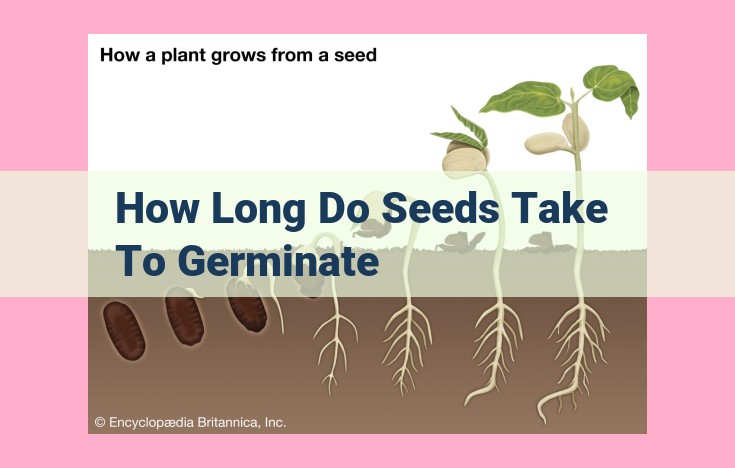Unraveling The Key Factors Driving Seed Germination: Influence Of Seed Attributes And Environmental Conditions

Seed germination, the process of seed growth into a seedling, is influenced by seed characteristics and environmental factors. Seed type and maturity, as well as dormancy mechanisms, affect germination success. Environmental factors such as temperature, moisture, light, and oxygen levels play crucial roles. Optimal temperature ranges vary for different seeds, while moisture availability is essential for activation. Light can influence germination through photoperiodism, while oxygen availability supports metabolic processes required for growth.
Understanding Seed Characteristics: The Key to Successful Germination
When it comes to growing plants from seeds, understanding the characteristics of the seeds themselves is paramount. Just as each species of plant exhibits unique traits, so too do their seeds.
Types of Seeds and Their Characteristics
Seeds come in a fascinating array of shapes, sizes, and colors. Some, like bean seeds, are large and fleshy, while others, like petunia seeds, are tiny and dust-like. Each type of seed has evolved specific characteristics that aid in its survival and dispersal.
Seed Maturity and Freshness: Crucial for Success
The maturity and freshness of seeds play a vital role in germination success. Mature seeds have fully developed embryos and sufficient energy reserves to support the growth of new plants. Fresh seeds exhibit higher germination rates, as their viability decreases over time.
Dormancy: Seeds’ Time Capsule
To ensure survival under adverse conditions, many seeds possess dormancy mechanisms that prevent them from germinating immediately. Dormancy can be triggered by factors such as temperature, light, or the presence of certain chemicals. By remaining dormant, seeds can wait for the right conditions to begin growing.
Environmental Factors Influencing Seed Germination: A Comprehensive Guide
Temperature
Temperature plays a crucial role in the germination process. Seeds have an optimal temperature range within which they germinate most successfully. Extreme temperatures, either too high or too low, can inhibit germination or even damage the seeds.
When temperatures deviate from the optimal range, seeds may exhibit dormancy, a state where they delay germination until more favorable conditions arise. High temperatures can denature enzymes essential for germination, while low temperatures can slow down metabolic activities.
Moisture
Water is indispensable for seed germination. It activates enzymes, hydrates the seed coat, and initiates metabolic processes within the embryo. The amount of moisture required for germination varies among seed species.
Inadequate moisture can lead to desiccation and seed death. Conversely, excessive moisture can restrict oxygen availability, impede seed imbibition (water absorption), and promote fungal growth.
Light
Light can have significant effects on seed germination, particularly in species that exhibit photoperiodism. Photoperiodism is the response of a plant to the length of day or night. Some seeds require specific light conditions, such as short days or long nights, to break dormancy and initiate germination.
For instance, many winter annuals require exposure to a period of cold temperatures and short days to overcome dormancy. This mechanism ensures germination occurs in spring when conditions are more favorable for seedling survival.
Oxygen
Oxygen is essential for seed germination as it supports cellular respiration. Without adequate oxygen, seeds cannot produce the energy required for metabolic processes associated with germination.
Dormancy mechanisms in some seeds limit oxygen uptake until conditions are favorable, such as when the soil is freshly tilled or the seed coat breaks down. Seeds with thick seed coats or buried deep in the soil may face oxygen limitations that hinder germination.
By understanding the influence of these environmental factors, gardeners, farmers, and plant scientists can optimize seed germination success, ensuring the establishment of healthy and thriving plants.